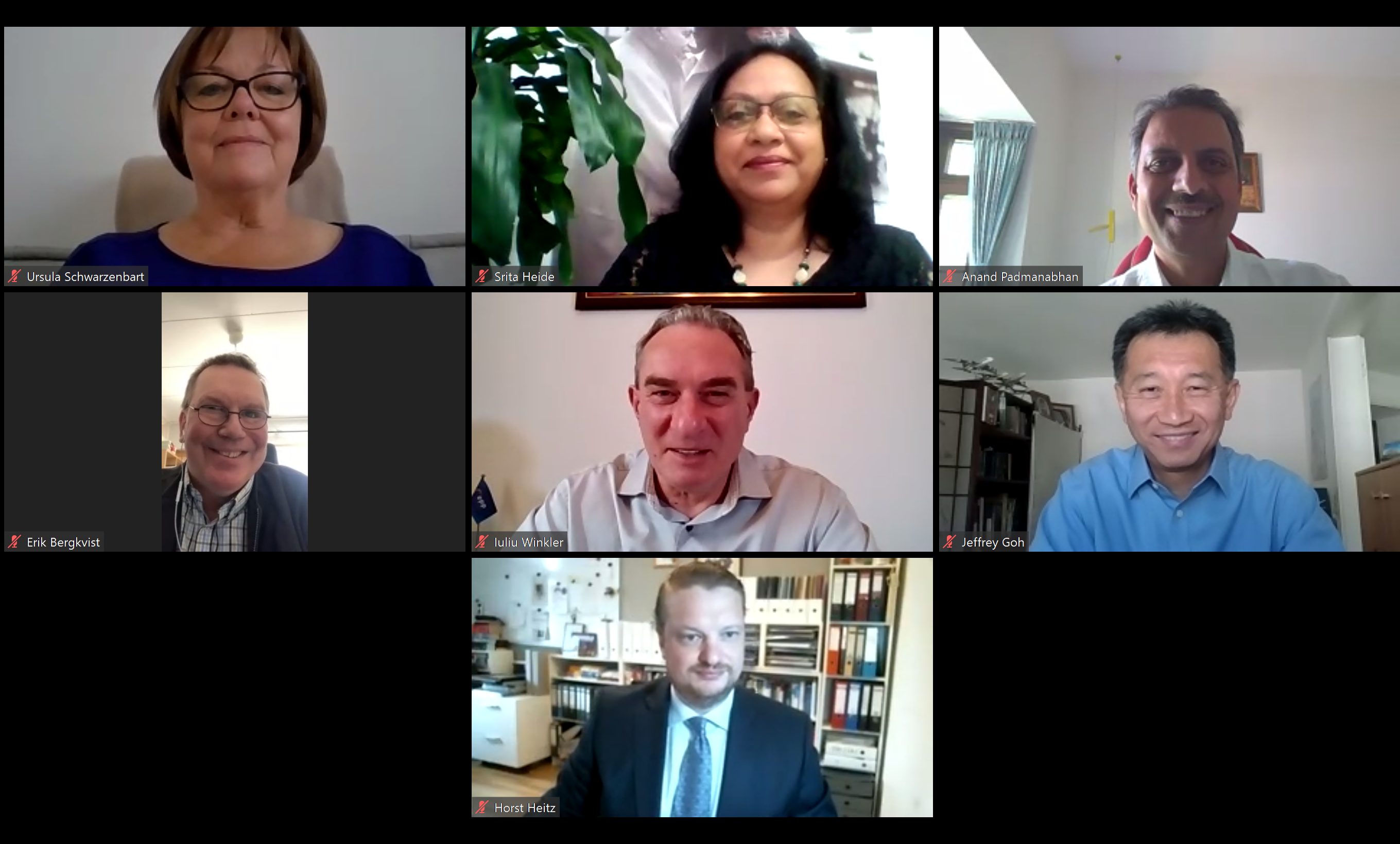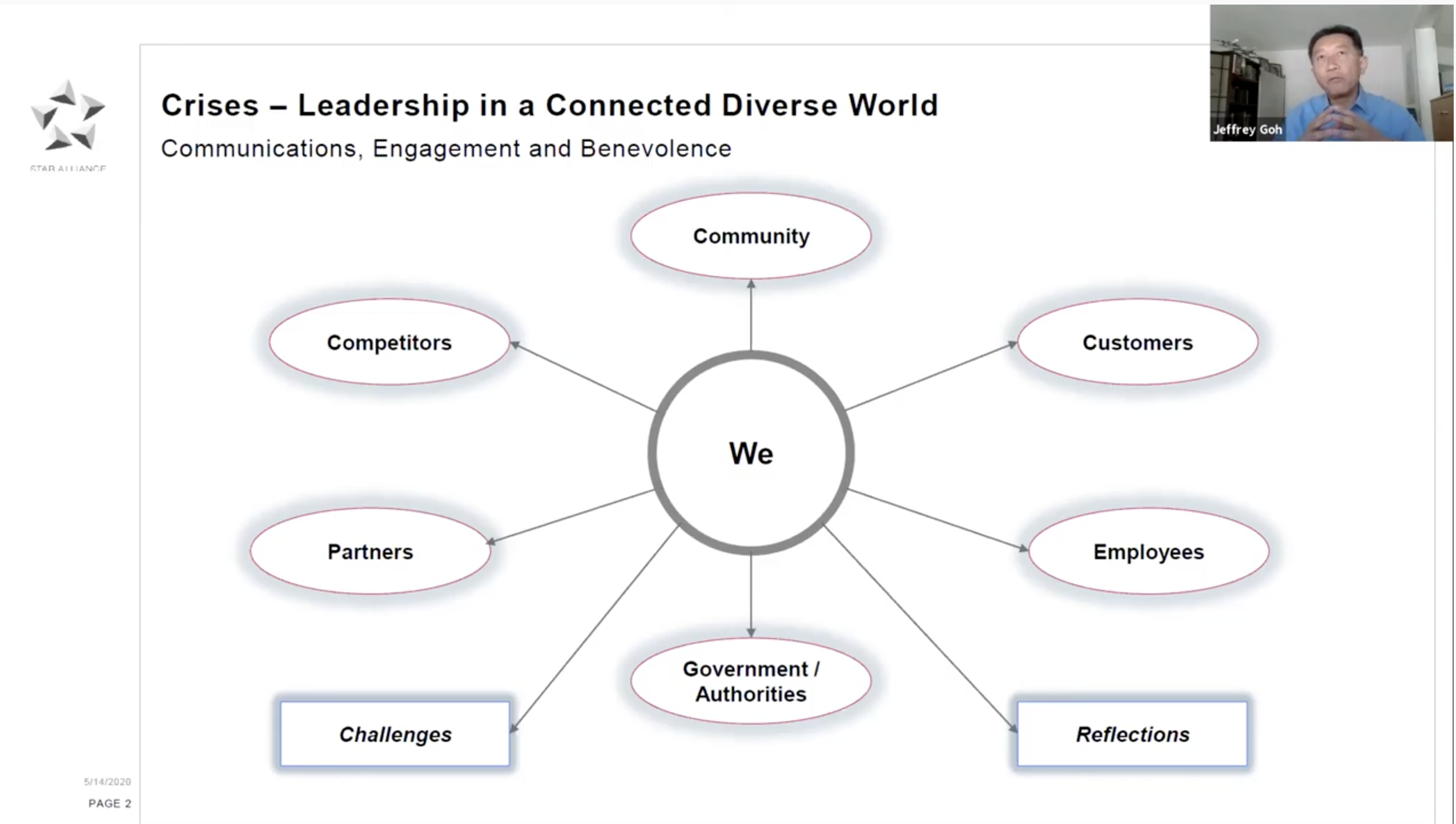Getting Back To Work:
How Diversity Helps Paving the Way Out of the Economic Crisis

💬 Diversity, inclusion, and localization by nature are part of Globalization. Quoting the survey made by the European Commission back in 2005, diversity policies make good business sense in 83% of the companies which have adopted them. This results in more and more entrepreneurs turning diversity into a business initiative and linking diversity goals to business goals, creating inclusive companies, markets and supply chains which enable to empower entire communities. Corporations partnering with diverse businesses and teams are gaining higher flexibility, increasing innovation, cost-effectiveness and problem-solving. They are able to explore new markets with a stronger competitive edge as a diverse and inclusive workforce is essential for understanding customers’ needs and therefore, strengthens business models.
For this reason SME Connect in association with SME Europe organised a webinar titled “Getting Back To Work: How Diversity Helps Paving the Way Out of the Economic Crisis“- Debate with Jeffrey Goh, CEO Star Alliance”, on Friday May 15, intended to provide business leaders and policymakers with a perspective on the evolving situation and aimed to bring in the business case for diversity in Europe and what it meant for European competitiveness globally.
The Webinar was hosted by Iuliu Winkler MEP, Vice-Chair INTA Committee, CULT Committee and First Vice-President of SME Europe of the EPP. The Keynote Speech was held by Jeffrey Goh, CEO Star Alliance. Ursula Schwarzenwald, Chief Diversity Officer at Daimler AG; Anand Padmanabhan, President of Wipro Technologies; Erik Bergkvist MEP, REGI, BUDG, ITRE Committees and Dr. Horst Heitz, Executive Director of SME Europe of the EPP and Chair of SME Connect Steering Committee, also spoke about the importance of diversity at this event.
The new generation advantages
Iuliu Winkler MEP stated that 2020 would be the year of the Covid-19 pandemic having three major actors, – the US, China & the EU starting a contest for the economic recovery. Mr Winkler stressed the need to think of the young generation first and reminded of the financial crisis of 2009-2010 that made young people most vulnerable to unemployment. Europe must learn those lessons and tap on its advantages, especially “new generation advantages” essential in the volatile context of a complex modern world. Driving the discussion beyond economic, trade or technological issues by encouraging a sincere dialogue within our society will sertainly benefit Europe’s prosperity and competitive edge.
The crisis made us think about things we dared not think of before
Jeffrey Goh, CEO Star Alliance, has shared some dimensions of what aviation was going through and Star Alliance in particular, with its 500 000 employees across the globe. Having current crisis challenging globalized world, physical connectivity and cross-cultural interraction – aviation was the first to bear the impact and would be the last coming out of crisis. Echoing Iuliu Winkler’s analogy to the 2009 world financial crisis, Jeffrey Goh believes current contingency impacts way more comprehensively, with no regard, whether small, medium or large entrepreises involved.
Jeffrey Goh continued with sharing experience of his own leadership and how Star Alliance was seeing its way into recovery. First of all it is about reinventing customer experience and shaping their thinking according to the new realities as well as managing the anxiety of the employees and their prospects of future employment. In adressing Iuliu Winkler’s concerns of high post-crisis unemployment risks, Mr. Goh forsaw emerging of jobs that did not exist yet. Another point, he mentioned, regarded the importance of coordinated and responsable decisionmaking creating frameworks that would not compromise drastically global connectivity principles. Mr. Goh has als0 touched upon SMEs that he views as partners and it is in times of crisis, he believes, that enduring partnerships come through. It is especially relevant how SMEs can be part of the solution. E.g., Star Alliance has recently been engaging with actors and sectors never considered before and even competitors to find out about their experiences and prospects as well as provide mutual support in the recovery process. Concluding, Mr Goh remarked how tough the novel challenge has been in terms of velocity of unfolding events and developing exit strategies. However he advised to share a useful view of not letting the crisis go to waste and explore the path to new opportunities.

Ursula Schwarzenwald, Chief Diversity Officer at Daimler AG, stated that March 13 was the last day of our past with the implementation of the lockdown. From one day to another everything looked different than it was before, she said. It will be a different world which we are currently going to. In the new normal we need to build up new skills to overcome this crisis. Since we all have to go through the same challenges, there is no competitive advantage. The new normal might mean more remote working and less business trips. Our managers must become more sensitive to diversity, but also more emphatic. She enlightened the benefits for Daimler AG by implementing the Strategic Diversity Management and the initiative Leadership 2020 long before COVID-19 and their impact on the current crisis. Moreover, she stated the necessity of diversity in companies in general and trust as key driver for a good exit strategy.
Anand Padmanabhan, President of Wipro Technologies, highlighted that Wirpo Technologies will also come out of the crisis stronger. It is important to focus on consistent and frequent communication and a better digitalisation. We need to adopt new skills for ensuring a more collaborated virtual environment, which enables us to become more productive and more profitable in the shortest time possible. People will not get employed by location, but by what they are able to deliver and their contribution to the company which means greater diversity, as the capability is spread around the world. The importance is to stay connected in a diverse world.
A doorway to new opportunities
Erik Bergkvist MEP served 13 years as responsible for regional development in Västerbotten before joining the European Parliament, where he has put a special emphasis on the importance of local SMEs. Mr Bergkvist strongly belives everything starts locally, despite the global context of todays economy. He also believes that current crisis might be a doorway to new opportunities as it gives space to creativity and, by adapting to new circumstances, a solid basis for innovation. The main question lies in how to give SMEs substantial support to help them work on and develop these new ideas. There is a need of a strategy, or a variaty of strategies, that are tailor-made for diverse regions and economies that coexist within the EU. He also emphasized the need of a multi-level approach in which coordination and contact with local SMEs as well as larger and regional companies is crucial in order to be most efficient with allocated resaurces. To conclude, Mr Bergkvist stressed again on the relevance of being open to new ideas, the ability to quickly react, adapt and cooperate in order to succeed in the #NewNormal context.
Dr. Horst Heitz, Executive Director of SME Europe of the EPP and Chair of SME Connect Steering Committee, also highlighted the role of entrepreneurs and SMEs in paving the way out of the crisis. Diversity is not only related to the team, but it’s the core, and furthermore, it is a strategy. The real champions of diversity are the SMEs. However, Diversity also means it must be fair from the global point of view. In the new reality people will become more diverse which we should also include in companies to ensure an even way out of the crisis.